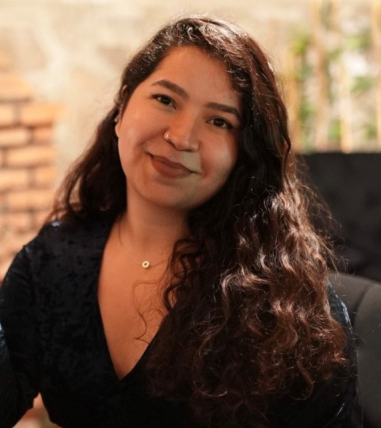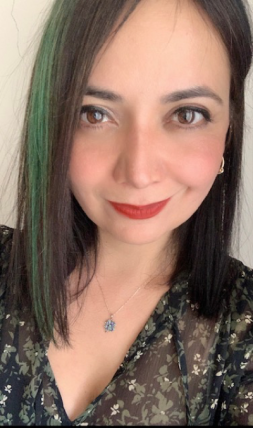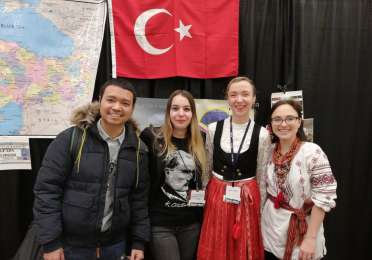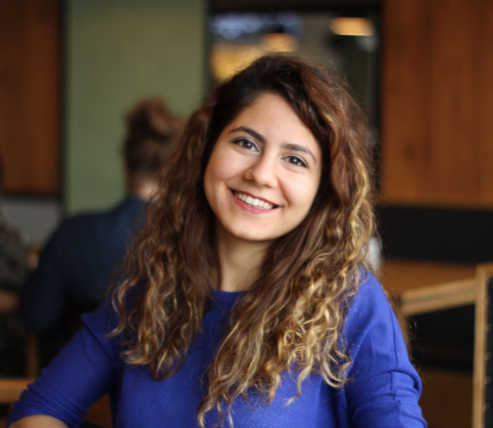Mission
The Turkish and Ottoman Studies Program at the University of Washington promote intellectual dialogue and scholarship to provide a deeper, interdisciplinary, and critical understanding of Turkey through a rigorous program in language, literature, history, politics, and culture of the modern Turkey and the Ottoman Empire as well as sharing and preserving the ethnic heritage of Turkey through projects that involve local, national and international communities to advance mutual understanding.
Endowed Turkish Lecturer Fund
The Turkish and Ottoman Studies Program aims to establish an endowed lectureship position that will preserve the instruction of Turkish language and culture and will support a distinguished faculty member in their pursuit of excellence in scholarly research, teaching, and outreach.
Who are we?
Our program was founded in 1968 by our research professor Walter Andrews, who was hired by the University of Washington that year, while he was working on his dissertation in Istanbul. At the time, Walter was the basketball coach of Orhan Pamuk in Robert College in Istanbul, who in Walter’s words “opened the way for him to become an Ottomanist”. Walter taught Ottoman and Turkish literature from 1968 until his retirement from a Research professorship, which he still holds. He has published several books, translations, and articles on Ottoman literature and literary theory in Turkish and English including the Ottoman lyric poetry: An Anthology.
Prof. Selim Kuru started teaching as an Acting Assistant Professor in 1999 in the Turkish and Ottoman Studies Program at UW. Since 2015, he is the director of the program. His work focuses on Ottoman 14th-16th centuries Anatolian literary history, genres with respect to the topic of love and its place in the elite Ottoman society. Prof. Kuru is actively involved in the Graduate School Interdisciplinary Ph.D. Program in Near East and Middle East Programs. He is among the founders of the Ottoman Studies Foundation and runs the intensive Ottoman and Turkish Summer Program in Cunda, Ayvalik, Turkey where he has been teaching Ottoman Turkish paleography.
Prof. Reşat Kasaba, an expert in the history and politics of the Middle East, is the Director of Jackson School and Chair of Stanley D. Golub in International Studies. Kasaba has taught undergraduate and graduate students at the School for over 30 years and is the recipient of a UW Distinguished Teaching Award. His courses cover a wide range of topics including economic history, state-society relations, migration, ethnicity and nationalism, urban history in the Middle East and world history. Recently, he has been researching the role of education in the formation of modern Turkish identity in the twentieth century. Dr. Kasaba is regularly featured in local and regional media for insights into some of the world’s most pressing issues, and is a monthly commentator on Voice of America (Turkey). He is currently President of the Association for Professional Schools of International Affairs and is a board member of the Middle East Studies Association of North America. Dr. Kasaba has written and edited seven books and over 40 articles and opinion pieces.
The program has grown stronger most recently with the addition of area studies faculty, Dr. Melike Yucel-Koc, and the enhancement of the Turkish language program. These developments have resulted in greater student interest and the establishment of new research projects. Dr. Yucel-Koc got her Ph.D. in 2015, specializing in Foreign & Second Language Education. Currently, she leads the Turkish Language Curriculum Project, a unique undertaking that aims to create a foreign and heritage language curriculum that aligns with national language teaching standards such as ACTFL and TESOL. Her current research on Turkish language learners and their needs supports this objective. Our program would be a pioneer among the other Turkish language institutions in the U.S. with this project. Dr. Yucel-Koc also leads the Oral History of Turkish Americans in Pacific Northwest Project, which aims to create a digital archive based on interviews with the Turkish Americans who migrated to Washington and greater Pacific Northwest area from Turkey.
Projects
The Ottoman Text Archive Project, led by our research professor Walter Andrews, aims to create a vast collection of documents crucial to understanding the history and cultural heritage of the Ottoman Empire accessible in a central web-based text archive.
-
- The Svoboda Diaries Newbook Project, an activity of the University of Washington Ottoman Texts Archive Project (OTAP), is engaged in the web-based publication, in both web and print-on-demand formats (the "newbook formats"), of 45 Svoboda diaries and transcriptions of Svoboda diaries that have been digitized by the Digital Initiatives Program at the University of Washington Libraries.
- The Baki project, headed by Prof. Selim S. Kuru, is a multi-year collaborative international project aims to create digital tools or adopt existing tools for application to identifying and visualizing the history and evolution of a large manuscript tradition.
The Turkish Language Curriculum Project, headed by our lecturer Dr. Melike Yucel-Koc, aims to create a foreign and heritage language curriculum that aligns with national language teaching standards (ACTFL & TESOL). Her current research on Turkish language learners and their needs supports this objective. TOSP at UW would be a pioneer among the other Turkish language institutions in the U.S. with this project.
The Oral History of Turkish Americans in the Pacific Northwest, led by our lecturer Dr. Melike Yucel-Koc, aims to create a digital archive based on interviews with the Turkish Americans who migrated to Washington and greater Pacific Northwest area from Turkey.
The Student FLTA Experience at UW
Yağmur Damla Elmas – FLTA 2017-2018

Which years did you serve as FLTA?
I served as FLTA at the University of Washington in the academic year 2017-2018.
What impact did the Fulbright experience have on you?
Although I already had a multicultural background, as I had the chance of living and traveling abroad starting from an early age, I can still say that my Fulbright experience expanded my cultural awareness in the way that I was not only a Fulbright FLTA grantee, but I was also the cultural ambassador of my own country throughout the academic year 2017-2018.
How was your FLTA experience? - What do you most often tell people about your Fulbright experience?
Well, it’s been almost 5 years since I came back from the U.S., but I still seem to have a lot to talk about my Fulbright experience. The very first thing I would love to mention is the worldwide family Fulbright gave me and no matter the distance, it’s priceless to have people who I can count on. UW & Turkish & Ottoman Studies Program staff helped me with everything possible since day one. Melike Yücel Koç and Selim Kuru were always there for me and supported me both academically and emotionally. I still remember our very first gathering as a team which was in the first few weeks of my arrival and where Melike had a birthday surprise for me, and I couldn’t have been happier.
The second thing I talk about the most is how I re-learned my mother tongue. With every single item I taught in Turkish, I realized how beautiful my language is. As an ESL/EFL teacher, teaching Turkish at UW provided me with remarkable professional growth.
As the UW & Turkish & Ottoman Studies Program and the Turkish community in Seattle were very active in organizing cultural events, the contribution to my life was not only professional but also social. I had the chance to meet Turkish professionals working and/or studying in Seattle. As an extrovert myself, I wanted to do a favor in return and that is why I opened the Turkish American Student Club at UW and gathered people from similar backgrounds together.
Being part of the “Turkey in Seattle Oral History Project” was both fun and teaching. While listening to the recordings of the interviews, I did not only enjoy listening to various Turkish accents but also learned a lot about the history of my home country, Turkey.
As a whole, I can sum up my experience and feelings with this Turkish saying “anlatılmaz, yaşanır”, meaning “it cannot be described but only experienced”.
Şeyda Aydan Soycan Yüksel-FLTA 2018-2019 Academic Year

What impact did the Fulbright experience have on you?
Fulbright was an amazing opportunity to change my perspective in many aspects. I think this opportunity helped me to understand what I can personally do to make the world a better place. Becoming aware of the beauty of “the different” while teaching my classes gave me a remarkable motivation to do my best to reach the students with different backgrounds, skills, and teaching habits. Living in a state which is known for its progressive nature was an amazing chance to observe how we can all break the walls of prejudgments in terms of gender issues, race and ethnicity. I felt like a cultural ambassador in every step of this journey, and tried to show the richness of our culture at its best, but more importantly, each student enriched my cultural experience about the States with their positive attitude in helping me understand the daily life practices of a different city as well as their eagerness of learning my mother tongue. I found a chance to teach our beautiful language and while doing that I noticed the similarities and differences I was intuitively aware, but not in practice, so it was an amazing first-hand experience in that sense, too. My students and people I know helped me a lot to have an authentic experience, and at some point, I started to feel like a “Seattleite”, who achieved to go back home with the most precious memories about the culture, the lifestyle, and best lifelong friendships.
What do you most often tell people about your Fulbright experience?
Whenever someone asks me how my Fulbright experience has been, I always find myself missing the most beautiful days of my life. It was a win-win journey. This experience might seem to most like a year spent abroad, but with the most precious life teachings, the opportunity of improving one for the better self, and all the hospitality and assistance my institution provided, it just feels like an outstanding experience which I never feel regretful to have become a part of. I can only say I would love to have an even longer time than the usual period of the scholarship. I feel so grateful for each unforgettable memory. I definitely suggest people to challenge themselves in this once in a lifetime journey to realize their true potential and experience the beauty of feeling the other.
Derya Devrimsel-2019-2020
What impact did the Fulbright experience have on you?
The Fulbright experience changed my perspective about life and the future. I was aware of finding a priceless opportunity to teach in an international environment for a limited time, and I did my best to make the most of it. Every day I spent there has provided me with a new experience and I tried to learn, explore everything and be more active than in my normal life. When you know lots of Fulbrighters from different countries, you understand that there are great people in this world, and we can create a better world. I am more optimistic about the future of the world.
What do you most often tell people about your Fulbright experience?
I mentioned the mid-year conference. It was very impressive. After summer orientation, I had the chance to see all Fulbrighters together. We joined informative sessions together, after sessions we started to explore Washington DC. I watched great performance shows. To know other Fulbrighters, listen to their journeys, learn new things about education was very motivating for me.

‘‘All great literature is one of two stories; a man goes on a journey, or a stranger comes to town.”
I was the one who goes on a Fulbright journey and the stranger who comes to town at the same time. Before this journey, I had to rank five universities for my location. The University of Washington was my first choice. When I saw the university list I started to search for universities, and I noticed UW has Turkish and Ottoman Studies. As a Turkish teacher and graduate student from the Turkish Language and Literature department at Mimar Sinan Fine Arts University, I wanted to work at UW and my dreams came true.
When I arrived in Seattle, visiting UW was one of the first things I did. NELC is in the Denny Hall which is the oldest building on the great campus. To see this great old building affected me so much. Then I met my supervisors who are also great, Selim Sırrı Kuru and Melike Yücel Koç. UW has four FLTAs from Turkey, Finland, Ukraine, and Thailand. I met my FLTA friends in summer orientation at Oregon University. We started to explore Seattle together before school started. Seattle is an interesting city. I rented my room near Ravenna Park. I liked to live in an American house with a great host Eve and her dog Oliver. Although Seattle is a populated city, Ravenna was a quiet neighborhood close to my school. In such a big city, finding a quiet neighborhood felt so peaceful. Seattle is an international city, all my FLTA friends had friends or organizations from their country. Also, Seattle has great nature.
My supervisor, my FLTA friends, the TA conference, and FUITS were the most helpful things in my life at UW and Seattle. My supervisor and my FLTA friends supported me every time I needed it. Before school started, I joined the TA conference which showed me the expectations of UW as a teaching assistant. It was so helpful for me because although I have been teaching Turkish at Bilkent Laboratory and International School for 5 years it was my first-time teaching Turkish at the university level. It was so helpful to understand UW's perspective about teaching.
Also, FIUTS (The Foundation for International Understanding Through Students) were so helpful, I joined their events, met new people, and even had a pen pal. I had a Turkey booth for Cultural Fest and had a chance to introduce my country and my department. It was a great experience for me to talk about my country with different people and see how little kids like Turkish delight so much. Our students who took Turkish helped me during the event and it was an interesting real-world context for them too.
Also, NELC was such an active department about organizing or attending events. My department organized ''A conversation with Ayşe Kulin'', ''In Search of a Silent History Turkish Cinema and Television between 1980-2010'' with Prof. Pelin Başcı from Portland State University, ''The Circle of Meshk: Workshop on Turkish Classical Music'' with Dr. Timuçin Çevikoğlu. These events made me reconsider the artistic side of my country. We joined the ''Seattle Turkish Film Festival and TurkFest: Turkish Cultural Festival of Seattle'' with my supervisors. To join an event about your country in an international atmosphere widened my viewpoint. I had the chance to introduce the Turkish language and teach Turkish at Turkfest and listened to my supervisor Dr. Melike Yucel Koc's presentation ''Turkey in Seattle: An Oral History Project''. Both were great experiences for me. Teaching my language was my first goal as an FLTA and I did it at a different place. Learning other Turks' stories about living in a different country made me understand my feelings better about living in the United States. I joined Ukrainian Cultural Fest, '' A Historic Evening with Eva Schloss, Stepsister of Anne Frank'' and American celebrations like Halloween, Christmas, Thanksgiving. I learned a lot about American culture and other cultures. Also, I had to take courses as a student at UW. I was a teacher in the morning, and I was a student in the afternoon. I took my courses about education. ‘‘Current issues in education’’ and ‘‘Seeking Educational Equity and Diversity’’ courses provide me with a different perspective about education. These courses made me notice not only different perspectives but also culture, and how to understand and communicate with others through storytelling.
I attended the mid-year Fulbright conference at Washington DC. It was very impressive. After summer orientation, I had the chance to see all Fulbrighters together. We joined sessions together, after sessions we started to explore Washington DC. I watched great performance shows. To know other Fulbrighters, listen to their journeys and learn new things about education was very motivating for me.
Everything was not perfect; every journey includes ups and downs. Looking for a place to stay, trying to get used to Seattle weather and Seattle freeze, being anxious with alert mails for security, facing up with the homeless problem of Seattle were the hard parts to deal with until Covid 19. It was a very hard decision for me to turn to my country because of Covid 19 with my wish. Hence, this journey was not completed like I wished for, but I would like to thank Fulbright for giving me this great opportunity, their support in Turkey and the USA. It is great to be a member of the Fulbright family. Once a fulbrighter always a fulbrighter ☺

I had the chance to serve as the Turkish FLTA at UW during the academic year of 2021-2022, teaching Turkish in the Turkish & Ottoman Studies Program. As an English teacher from Turkey, teaching my native language was a unique experience. I initially thought teaching Turkish would not be very different, and perhaps even easier, than teaching English. However, I quickly realized that teaching one's native language comes with its own complexities, and that Turkish is a much more intricate language than I had thought! However, this challenge allowed me to appreciate my language much more than I used to.
Over time, teaching Turkish grew to be an incredibly rewarding and enjoyable experience. Turkish is not among the most popular languages people want to learn. Yet, this small community of students showed up to class every day, eager to learn the language. Witnessing their efforts to speak my non-mainstream language filled my heart with so many emotions. However, the most remarkable aspect of the Turkish classes was the sense of community that slowly emerged in the classroom. With the help of Melike, the Turkish group formed a close-knit circle. As a graduate student, I took various courses there, but none had an environment quite like this. In those other classes, the students barely knew each other! As the TA, I was able to build lifelong connections with all the students. Moreover, through Melike’s “Turkey in Seattle Oral History” project, I had the chance to meet various individuals, including students, volunteers, and academics, from different backgrounds. Collaborating on this project together, whether through writing transcripts or filming videos, was an inspiring experience for everyone involved. Getting to know the different stories and struggles of Turkish immigrants in this country exposed me to entirely new perspectives and realities.
My experience as an FLTA at UW was very meaningful to me as it allowed me to connect with a diverse group of individuals whose perspectives have forever changed me for the better. Academically, the opportunity to take courses at UW influenced my research focus as a PhD candidate. However, beyond academia, the sense of community I experienced at UW was incredible, and it made me fulfill my dream of living in a multicultural environment. Even though I have returned to Turkey, I am still in touch with most people I met during my time at UW, and it feels like I am still part of that multicultural community that resonates with my core identity. Through this experience, I have not only had a chance to make many friends and meet academics but have also gained newfound confidence. Meeting different people initiating conversations has become second nature to me. I never knew I could exude such confidence!
My experience as a Turkish FLTA at UW was life changing. It is through this experience that I have a stronger appreciation for my own culture and language, a newfound confidence, and a sense of belonging in a multicultural community.
Related Degrees
Upcoming Courses


